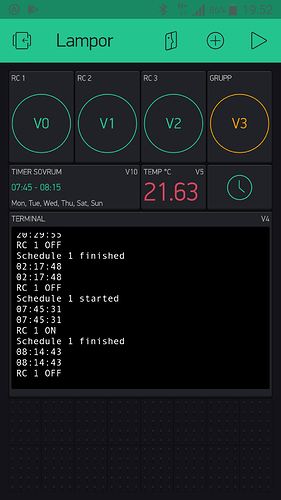Feeling kinda stupid now!  I uploaded a screenshot showing the pins, but then I remembered I’d removed Eventor so I made an new one. Of course I forgot to put it in dev mode! The dubble faceplant emoji is… where?
I uploaded a screenshot showing the pins, but then I remembered I’d removed Eventor so I made an new one. Of course I forgot to put it in dev mode! The dubble faceplant emoji is… where?  Thanks for bringing it to my attention @PeteKnight
Thanks for bringing it to my attention @PeteKnight
@Costas, here is some data that might confuse you as well:
Timer set to 14:15 - 23:30, extra finish run at approx 05:18 = stop time + 5 h 48 min.
Timer set to 14:15 - 20:30, extra finish run at approx 02:18 = stop time + 5 h 48 min.
Thinking it might has something to do with the duration of the run time (I’m out of ideas, testing everything), this morning I changed the timer to 07:45 - 08:15. No extra run yet! I have looked at the code so many times I’m probably blind to flaws now.
Anyhow, a better screenshot for your amusement 
